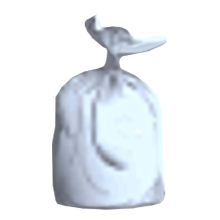A wide-ranging survey of more than 1,300 students has provided a wealth of information about the views, attitudes, and behaviours of young people in Guernsey and Alderney.
The Guernsey Young People's Survey has been undertaken since the early 1990s at three-year intervals. The 2022 survey results have been published today after students, who were in Years 6, 8 and 10 at the time of the survey but have now moved up a year, were asked more than 80 questions on topics such as drugs, alcohol, tobacco, sex and relationships, sport and physical activity participation, food and health, and emotional health.
Headlines include:
- The percentage of student who enjoy all/most lessons in school reduced from 44% in 2019 to 39% in 2022.
- More students reported that they had been bullied in or near school in the last 12 months (33% in 2022, up from 22% in 2019).
- A sharp increase in students who vape regularly, rising from 2% in 2019 to 10% in 2022.
- The percentage of students who are proud of their school decreased from 63% in 2019 to 52% in 2022.
- More students walk or cycle to school (40% in 2022 up from 36% in 2019).
- An increase in the number of students who drank more alcohol than they intended in the previous year, from 22% in 2019 to 27% in 2022.
The Committee for Education, Sport & Culture worked alongside colleagues within the Health Improvement Commission to carry out the survey.
Deputy Andrea Dudley-Owen, President of the Committee for Education, Sport & Culture, said:
'The Young People's Survey results are very important and useful for our Committee, and other Committees where relevant to their mandate, as well as senior educationalists when making decisions on where we focus our limited resources and target specific issues. An increase in the number of students saying they have experienced bullying in or near school is of concern, as is the number of students regularly vaping.
'Schools received individual feedback on their survey results and through our interim governance role, we have already let school leaders know that we are keen to hear from them about actions they are taking in response to the survey findings, both to address the areas of concern and as importantly to share best practice. I'm pleased that some of the actions already underway to realise the ambitions of Our Education Strategy, such as our commitment to ensuring that the protective measures in place to safeguard and keep learners safe are of the higheststandard in all settings, will also bring about improvements in areas highlighted by the survey.
'This recent survey is the first since the pandemic, where young people would have felt disruption and impact not only with periods of social isolation and distance learning but also the significant measures required to keep schools open and mitigate the spread of Covid. Raising children to be well rounded citizens needs input from the whole community and I would encourage parents and carers to use the findings of the surveys to have age-appropriate conversations with their children, then to continue to check in with them regularly and to let their school know if there are any concerns that the school can help with. A joint approach with school can be extremely effective and beneficial in supporting our children and young people. '
Alun Williams, Be Active lead at the Health Improvement Commission has managed the survey on behalf of Education for more than 20 years, said:
'80+ questions were asked about aspects of young people's lives, so the survey provides a wealth of information about the views, attitudes, and behaviours of young people. The most important aspect of the survey is the rich data that the survey provides schools and education services. Over the years we have seen how this has shaped policy and practice in shaping young people's lives. The survey results have been shared with all schools and we know that they have scrutinised their reports to reflect on their students' recent experiences. It is also a valuable opportunity to hear the voice of young people. As always there are some areas for concern and experience tells us that these issues are best addressed through a community response.'
Dave Stumpf, Head of Education Inclusion Services, said:
'The Young People Survey gives students a voice so it's important that we listen and act on the findings. Education professionals will continue to work with relevant colleagues across the States, because we know meeting the needs of young people often requires a multi-agency approach. We know progress has been made in several areas, however it is important that over the next three years we focus on and address the findings of the 2022 survey, including meeting the needs of teenage girls, awareness and education regarding substance use, and supporting the mental health and wellbeing of all young people. I'd like to encourage parents and carers to partner with us to ensure that they are putting appropriate safeguards in place outside of school, to support the work we are doing in schools.'
Background
The surveys have changed over the years. The original versions were paper-based and focused on health issues. These surveys have provided an important evidence base that has been used for a variety of purposes:
- To monitor trends amongst young people especially to measure developments over time.
- To benchmark the findings against other communities.
- To inform practice - the survey has been especially significant in shaping health-related activities such as the Drug and Alcohol Strategy, Participation of Young People in Sporting Activities, Developments in Personal Social and Health Education.
The Guernsey Young People's survey has been undertaken since the early 1990's and is the key evidence base for the collation of the views, attitudes and health behaviours of young people in Guernsey.
The Guernsey Young People's survey took place in Spring 2019 and is administered by the Schools Health Education Unit. The unit are leaders in gathering evidence about the behaviour, views and attitudes of young people.
1400 + pupils in Years 6 (90% of total Cohort), 8 & 10 (71% of total cohort) across the Bailiwick, including St Anne's Alderney, undertook the survey.
The results have been shared with a dozen 'expert commentators' who work across a range of services that support young people.
How we use the Young People's survey
Over the years the surveys have provided an evidence base that has been used for a variety of purposes:
- To monitor trends amongst young people, especially to measure developments over time
- To benchmark the findings against other communities
- To inform practice - the survey has been especially significant in shaping initiatives such as the children and Young People's plan, the Drug and Alcohol Strategy, participation of young people in sporting activities, developments in Personal Social and Health Education
- To help shape the future provision and formulation of strategies including the Children and Young People's plan, the Drug and Alcohol Strategy, the Tobacco Control Strategy, Health Improvement and Transforming Education Programme
- Following the 2016 survey over 30 presentations were made to organisations that work with young people
- Each school will receive a summary of the results for their own school which can be compared to the results across the wider cohort













